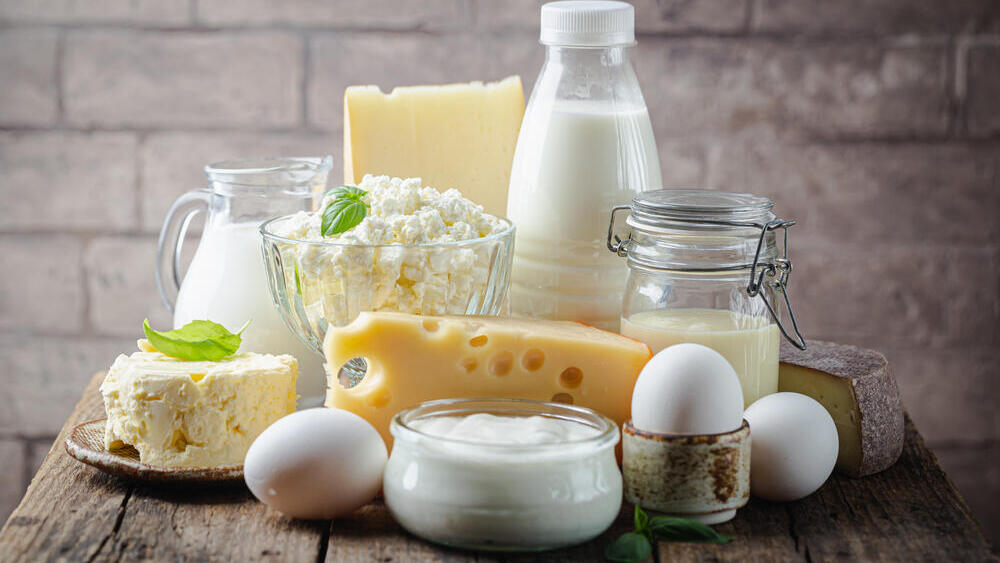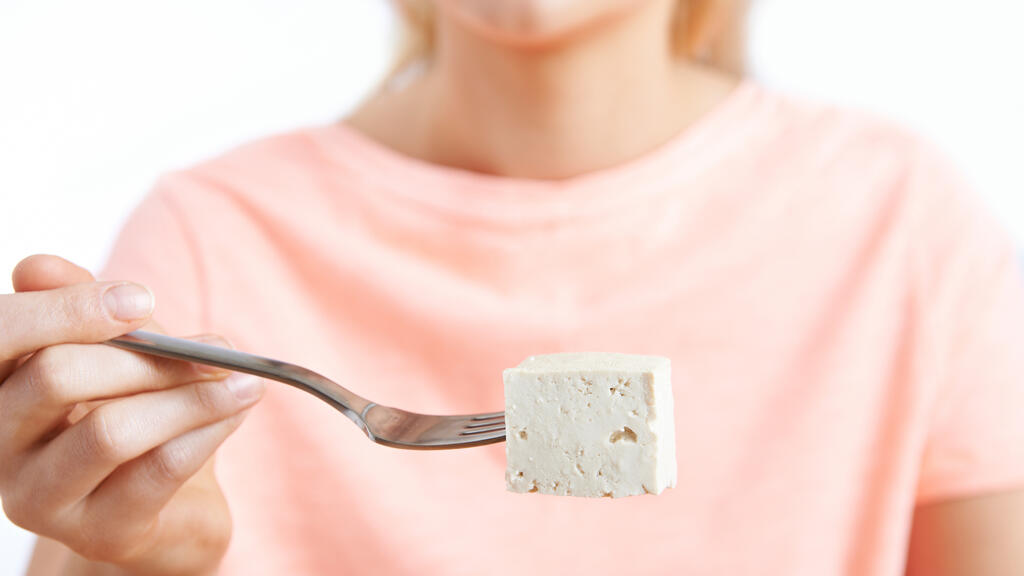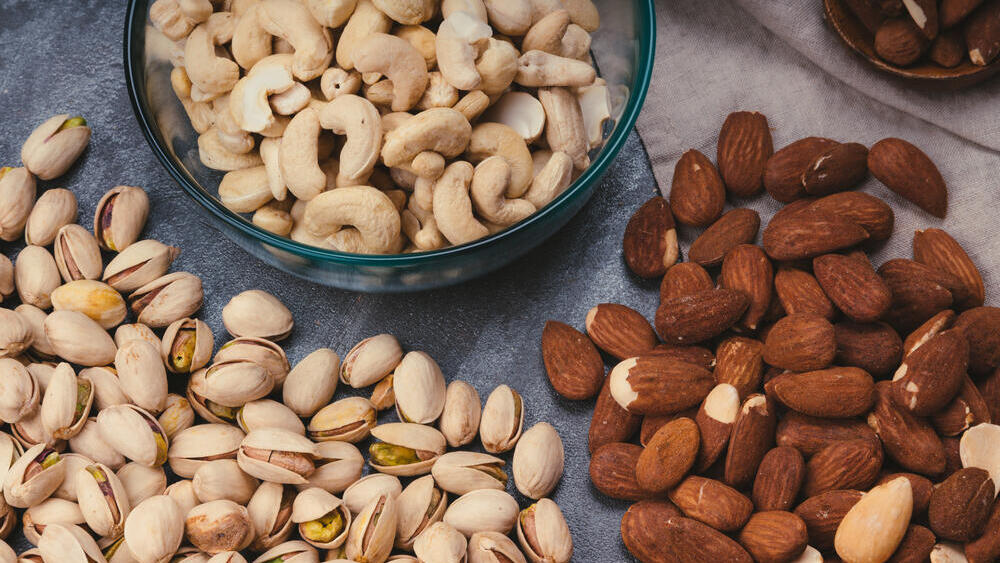Shavuot is upon us and, like every year, we will join with family and friends for a celebration around a table full of dairy foods and cheesecakes. But what happens when the dairy products reach our digestive system?
More Stories:
Adi Zusman, a clinical nutritionist, points out that a significant percentage of the population suffers from various sensitivities, and dairy products may have a negative effect on them.
"Some suffer from irritable bowel syndrome. Others suffer from gas, abdominal swelling or irregular bowel movements. Even if you have been diagnosed with any inflammation in the digestive system, stomach or intestines (Crohn's, colitis or diverticulitis), or you suffer from reflux and heartburn, you should reduce dairy products. Remove them from the menu for several weeks and examine how you feel. The recommendation is also good for people who suffer from autoimmune diseases such as psoriasis or arthritis," according to Zusman.
Lactose, casein, cows and sheep
Lactase, the enzyme that breaks down the milk sugar lactose, is lacking in most of the adult population in the Middle East. Even switching to low-lactose products does not necessarily solve the problem.
"One of the proteins found in every delicacy and cheese is casein, mainly type A1 and A2. Most industrial milk in Israel contains casein A1," notes Sussman. "From studies that examined the effects of both types of casein on the human digestive system, it becomes clear that the consumption of A1 casein stimulates the immune system to the point of inflammatory developments, such as in inflammatory bowel diseases or stomach inflammations. In addition, the consumption of milk containing type A1 casein can cause great discomfort, including abdominal pain and irregular bowel movements."
A2 casein is mainly found in goat and sheep milk products. This is probably one of the reasons why sheep's milk cheeses are better digested by people who are sensitive to cow's milk and its products.
"For people who do not get along with sheep's milk, it is recommended to consume hard cheeses and not cheeses for spreading, yogurt or white cheese. The harder and richer in fat the dairy product is, the lower percentages of lactose it has, so it is better absorbed in a sensitive digestive system," says Sussman.
What do you eat instead?
Those who avoid consuming dairy products, whether for health or ideological reasons, often encounter the problem of what to eat instead. In recent years, the abundance of foods containing milk substitutes – rich in flavor and with high nutritional value – has increased, and these are also a substitute for the dairy products on the holiday menu. Hagit Dayan, a clinical nutritionist at the Hillel Yaffe Medical Center, checks what their benefits are and whether they are really healthy.
"Legumes, vegetables, fruits, whole grains and unsaturated fats from plants are foods that are a major part of the Mediterranean diet recommended today for the entire population," says Dayan. "This diet has been proven to improve general health and reduce the risk of many diseases. These foods are consumed as milk substitutes in many recipes, whether in their original form or at a low level of processing.
Legumes - high-quality plant protein
This group contains lentils, chickpeas, peas, beans, fava and soy.
"These foods are rich in protein, complex carbohydrates and dietary fiber. They are also a high-quality source of minerals, such as calcium and iron, zinc, potassium and phosphorus, and vitamins from the B group, including folic acid."
One of the popular legumes is soy, which can be a worthy substitute for dairy recipes. Soy is a popular raw material and it comes in many forms, some with a low level of processing such as tofu, soy drinks (milk substitutes) and edamame and some items that are more processed, such as soy puddings (cheese and yogurt substitutes) and soy protein which is a meat substitute.
"Over the years, there have been controversial opinions on soy consumption," Dayan points out. "In the past, concerns were raised regarding the high content of estrogen and its effect on our bodies. Studies published in recent years clearly show that not only does the daily consumption of soy have no harmful effect, but there are many benefits in including this food in our menu.
"Soybeans are rich in substances called phytochemicals, including isoflavones, which have protective effects against various types of cancer, such as breast cancer, endometrial cancer and prostate cancer. In addition, it was found that soy helps improve blood lipid levels, blood pressure values, reducing menopausal symptoms and even has a beneficial effect for bone density in the spine," she explains.
"Today the recommendation is to consume the product in the form closest to raw and with few other ingredients. This category includes foods such as tofu, soy drinks without added sugar and stabilizers, edamame, tempeh, miso, soy flour and soybeans in their raw form. It is also important to have additional protein on the menu besides soy, such as lentils, chickpeas, peas, beans and fava."
Cholesterol-lowering oils
Vegetable oils also contain unsaturated fat that has beneficial effects on our health, including, among other things, lowering cholesterol and protecting the heart, anti-inflammatory properties, increasing the absorption of fat-soluble vitamins, brain health, improving sugar values and maintaining a healthy weight.
"To this group belong foods such as tahini, avocado, almonds, nuts, seeds and olive oil. Almonds and nuts (natural and not roasted) are rich in essential vitamins and minerals, dietary fiber and contain significant amounts of protein," Dayan adds.
"For those who are allergic to milk or who prefer to avoid its consumption for various reasons, there are today many varied and even delicious substitutes that one can enjoy at the holiday meal. It is important to note that the consumption of legumes and vegetable oils is recommended for everyone due to their proven health benefits, and it is desirable to include them in the menu regularly," she concludes.
And what about calcium?
Zusman explains: "This is a successful marketing gimmick. In order to maintain the strength of the bones of the skeleton, we need not only calcium, but a wide variety of vitamins and minerals that are found in many sources in nature.
For example, a winning combination of calcium, magnesium, potassium and vitamin C, which are all essential for strengthening bones, is found in green vegetables such as spinach and chard leaves (preferably steamed), broccoli, green beans and parsley leaves. Calcium is abundant in flour, nuts, almonds and also in soy products (not genetically modified, preferably organic), such as tofu and tempeh."




